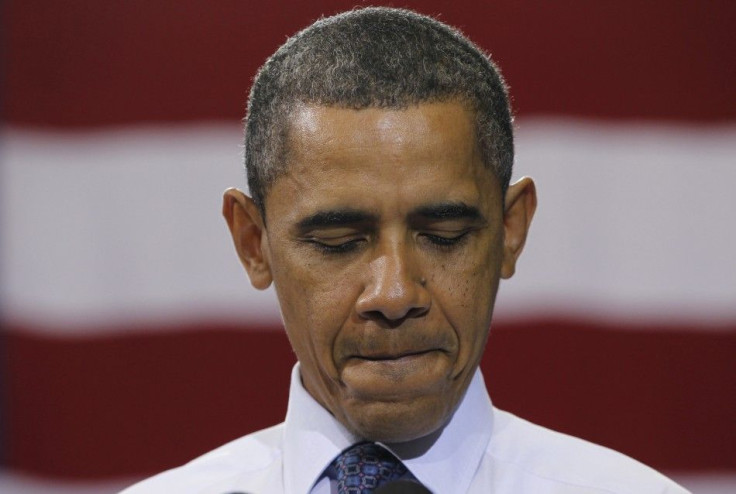11th Hour Debt Debate: Nation Finally Paying the Price?

Even though the congressional leaders had all the time in the world to strike a deal on the issue of debt-ceiling raise, they seem to be shamelessly waiting for an 11th hour drama. Technically speaking, Aug. 2 is the end of grace period for extraordinary measures and the U.S. borrowing limit, currently at $14.29 trillion, was reached on May 16 this year. Instead of getting things done, Democrats and Republicans seem to get a kick out of the 'blamestorming game'. Is this what the nation deserves?
Mass involvement in 11th hour:
Sometimes when things get out of control, you can't help it if you find it funny. President Obama, renewing his request on July 29 for mass involvement in letting congressional leaders know what the people think about debt debate, got Capitol Hill's phone circuits near capacity. Really? It is almost like seeking neighbors' advice when your child is being electrocuted! On July 29, when the country is just a weekend away from a catastrophic crisis, the president is appealing to the masses for involvement, when ideally he should be spending quality time with family after signing the short-term extension of the debt ceiling which the GOP has agreed to.
Instead, the President and the Democrats oppose with all their might, a GOP agreed short-term extension. "It would be irresponsible to put our country and economy at risk again in just a few short months with another battle over raising the debt ceiling," the White House said in a statement shortly after Obama met with congressional leaders last weekend.
Though Obama is dubbed a mediocre president with declining mass support, he is facing a crisis for which he is not responsible. If you go by the statistics, Republicans have more to do with America's debt ceiling raises than Democrats.
Statistics not in favor of GOP:
Though the U.S. government defaulting on its legal obligations is "an unprecedented event in American history," debt limit raises have happened as many as 78 times, starting in 1960, says the tU.S. treasury department.
"Congress has acted 78 separate times to permanently raise, temporarily extend, or revise the definition of the debt limit - 49 times under Republican presidents and 29 times under Democratic presidents," says the U.S. treasury department.
Statistics on earlier debt limit raises, according to the chart displayed by Senator Jeanne Shaheen, shows that George W. Bush raised the debt ceiling seven times for a total increase of 90 percent, among the highest percentage increases in debt by any U.S. President so far. Yet another Republican President, Ronald Reagan, raised the debt ceiling 18 times for a total increase of 199 percent, which is the highest ever percentage increase in U.S. history.
The chart also says President Obama has raised the debt ceiling three times for a total increase of 26 percent, among the lowest percentage increases so far.
The Republican presidents have raised the debt ceiling by a total of 414 percent, while the Democrats' total percentage increase is 152 percent.
If you go by the statistics, the Republicans' clamor demanding a plan to rein in the federal debt instead of reaching a conclusion over raising the debt ceiling is a really bad gimmick to put Obama in an awkward situation and deny him a second term at the expense of the entire nation.
Feasibility of budget cut:
Sure, raising the debt ceiling may not be too constructive a step in saving the country from long term crisis. But budget cut the GOP is fiercely arguing for, by taking away funds meant for the elderly, disabled, military and the average hard-working American is simply too hard for people to digest.
Imagine this: An average U.S. citizen one day finds him/herself in a condition where he/she can hardly support him/herself and family, let alone pay bills and taxes, owing to certain unforeseen circumstances. Will the government go easy on collecting the money he/she owes to the treasury? So when the treasury is going through a bad phase is it right to expect citizens to live on water and air for saving the country from a falling credit rating?
While the U.S. treasury department says failure to raise the debt ceiling before the projected default date of Aug. 2 would lead to "catastrophic economic consequences," Republicans are busy finding expert advice which says U.S.'s lack of plans to tackle debt will result only in a downgraded U.S rating.
"More than two years after the beginning of the recent crisis, U.S. policy makers have still not agreed on how to reverse recent fiscal deterioration or address longer-term fiscal pressures," GOP quotes Standard & Poor's credit analyst Nikola G. Swann. "He (Swann) said the rating agency puts the chance of a U.S. downgrade within two years at least one-in-three," GOP quotes Matt Jarzemsky, of The Wall Street Journal.
What Obama failed to do:
Instead of addressing the debt talks as "reckless and irresponsible," Obama should have taken the onus and abide by whatever has been agreed upon by the Republicans so as to avert an immediate disaster to a country which is recovering from the consequences of the recent recession.
But he chose to be adamant on his stand for a long-term debt raise to avoid a politically trying vote before his Nov. 2012 re-election bid. And the Republicans foresee a handsome opportunity in pushing Obama to do just that.
© Copyright IBTimes 2024. All rights reserved.






















